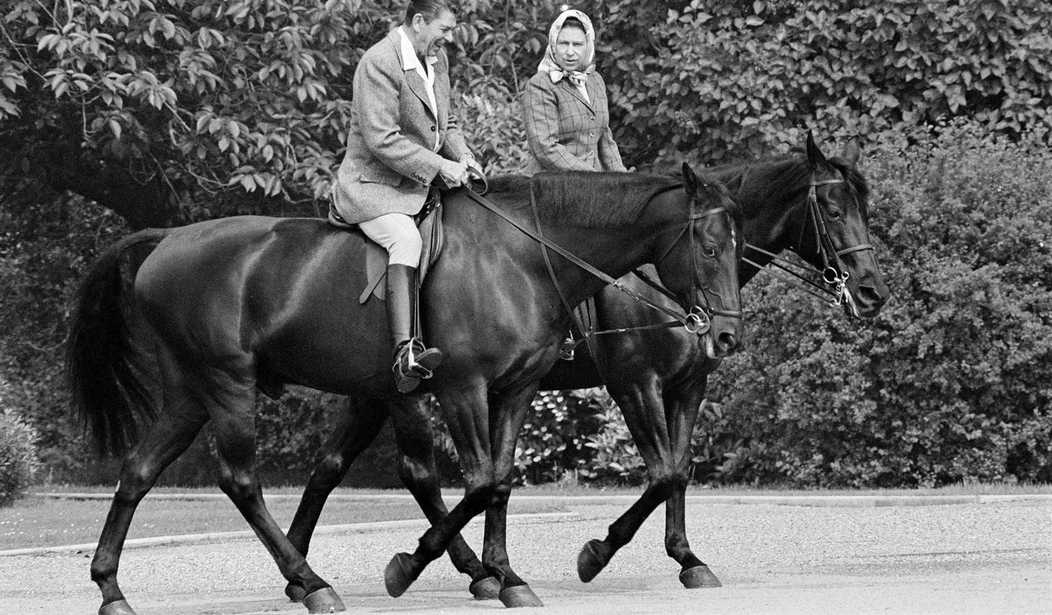When Teddy Roosevelt ascended to the presidency after the assassination of William McKinley, a big business GOP political opponent exclaimed in disgust, “Now that damned cowboy is in the White House!”
This same reaction was widespread among the Republican establishment when Ronald Reagan was elected president in 1980, as he was a conservative, a conservationist and yes, a cowboy. Much like TR, Reagan also celebrated the outdoors, especially the American West. His favorite poet may have been Robert Service, a big, handsome man who penned poetry about the West. Reagan could recite “The Mountain and the Lake” at an invitation.
Reagan advocated for conservation of the Western lands, rivers, and mountains, more than many realize. Reagan’s legacy of preservation of American lands dates back to his political proving ground when he served as governor of California and signed into law more environmentally conscious legislation than had ever been done before in the state of California. Reagan passed The California Environmental Quality Act (CEQA) in 1970 to institute a statewide policy of environmental protection. He signed the Mulford-Carrell Act, combining the Bureau of Air Sanitation and the Motor Vehicle Pollution Control Board to create the California Air Resources Board (CARB). He supported legislation to create the Lake Tahoe interstate compact in order to save the lake, and blocked dam proposals on the Eel River and on the Middle Fork of the Feather River.
Recommended
One of Reagan’s most important quotes is also one on conservation, and states, “preservation of our environment is not a liberal or conservative challenge, it is common sense.”
Forty years ago, Ronald Reagan knew the importance of preserving American heritage by conserving our public lands for future generations to enjoy, as he had. Conservation is a conservative ideal because it is about defending the freedom of the individual.
The Gipper’s own ranch serves as a model of conservation and his love of the unspoiled landscape he often spoke of and wrote about.
Recent legislation passed by the Trump administration, the Great American Outdoors Act, was a bi-partisan effort to protect the wild lands of our country, and ensure that natural areas of America will remain protected and receive the attention and care they deserve for millions of Americans to enjoy in the years to come. But the Great American Outdoors Act is just the tip of the iceberg. There is much more work to be done.
In Reagan’s home state specifically, preservation rooted in conservative ideology continues in his legacy, with three important California bills that have been combined together in a single piece of Senate legislation. California’s outdoor recreation retail industry contributes billions to the economy of the state and provides just under a million jobs to California natives. The combination of these bills to ensure future preservation of California’s lands and rivers and the continuation of California’s economic prowess would’ve made the Gipper smile. The Northwest California Wilderness, Recreation, and Working Forests Act, which will restore historically damaged forests and watersheds, expand wilderness areas, and improve outdoor recreation opportunities and access throughout Northwest California, would also protect portions of the North Fork Eel River, a tributary that flows in close proximity to Reagan’s old stomping grounds in Northwest California.
Additionally, the Central Coast Heritage Protection Act would protect 244,909 acres of wilderness, creating two scenic areas encompassing 34,882 acres, and designating 159 miles of wild and scenic rivers in the Los Padres National Forest and the Carrizo Plain National Monument. The San Gabriel Mountains Foothills and Rivers Protection Act will build upon the boundaries of the San Gabriel Mountains National Monument, and safeguard wilderness and wild rivers as well.
In an era where technology and phone screens reign supreme, the rushing rivers and streams, tall waving grasses, grand mountain ranges and expansive fields that cover the western and southern portions of America are a reprieve for the soul, a natural reset.
They allow for an escape from the fast-paced world and evoke such a sense of freedom, hope and wonder. And for the sake of our country’s well-being, they must remain that way. Like Reagan the cowboy, we must foster and protect the environment that freely and continuously provides us with those feelings of contentment.

























Join the conversation as a VIP Member